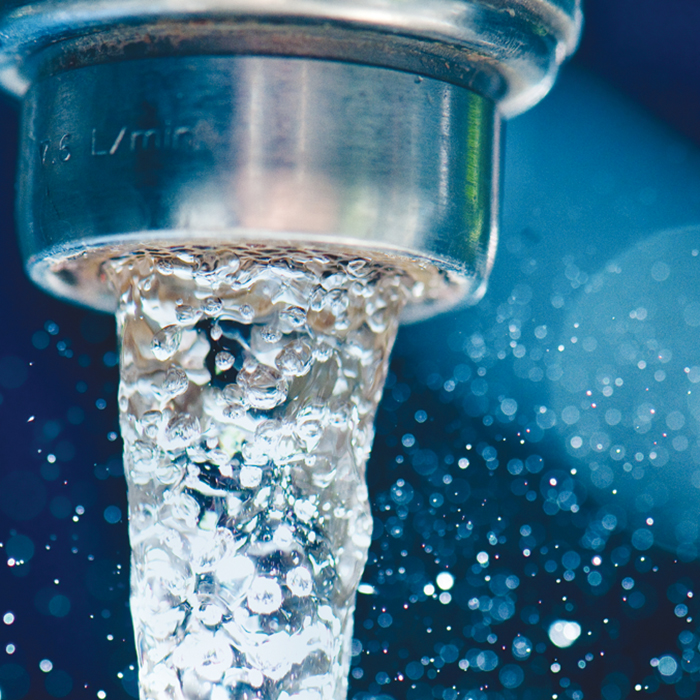
The problem with contaminated private wells in Dover is not their problem, according to the Thames-Sydenham Region Source Water Protection Committee.
Michelle Fletcher, source protection co-ordinator for the Upper Thames River Conservation Authority, spoke to council recently after a motion from Coun. Michael Bondy asking they be consulted about how to address the issue of dirty water in Dover and be a partner in looking into the matter.
Under the Ontario Clean Water Protection Act, Fletcher said the terms of reference for the committee is limited to municipal water sources and its threats, but does not cover water sources for private wells.
“There are 21 prescribed threats to municipal drinking water that are very specific technical policies and they only apply to municipal water sources,” Fletcher told council.
She also said the committee was not the appropriate contact point for council as it only meets occasionally, and staff were the ones with the science background, providing the details to the committee so they can create policy based on the science.
Based on that information, Fletcher said the Source Water Protection Committee could not help council with the Dover well water issues as didn’t fall within the committee’s scope.
This information leads council and the residents with well water issues back to the beginning with the question no one seems to be able to answer – who is ultimately responsible for the safety of the underground aquifers that are the source of drinking water to private wells?
Water Wells First (WWF) spokesperson Kevin Jakubec said he tried to get before council as a deputation to talk about the Dover well issue and give council relevant information from the Ontario Environmental Protection Act (EPA), but was not allowed to speak.
In an interview with The Chatham Voice, Jakubec said he was “disappointed” with the response from Fletcher.
“Clearly there is well interference in Dover, and I had hoped they would have more initiative to cut through the bureaucracy and red tape to look into the problem,” Jakubec said. “They are tasked with looking at source water protection, and the municipality has the responsibility to supply its residents with clean drinking water.”
After the meeting, he approached North Kent Coun. Joe Faas, giving him a copy of his presentation and asking him to bring it to council.
In the presentation package, Jakubec said the Ontario EPA, in Section One, lists vibration as a contaminant, which is new information for council. He also asked that Faas ask council to withhold issuing building permits for the North Kent Wind project and the Otter Creek project, north of Wallaceburg, until the contingency plan for well water issues includes the installation of municipal water lines if wells are affected and filtration measures don’t work, at the company’s expense.
“It’s not in contravention of the willing host agreement council signed (to withhold the permit), it is just making sure residents have a clean water supply and protects their property values,” Jakubec said. “If the aquifer supplying the Dover wells fails, municipal residents would not face an increase in water rates if water lines are included in the contingency plans.”
He said in Waterloo for instance, they have a well interference compensation plan that says if a well goes dry or is negatively impacted, they get a water line installed.
“Should the wind turbines impact the wells, it is fair that people get a filtration system but if that doesn’t work, they get a water line,” Jakubec added. “It’s the only long-term solution for a potable water supply.”
WWF is currently investigating to the well water in Dover to see what is in the sediment and particulates, a job he said the Standards Branch of the Ministry of the Environment should be doing. They will turn over whatever they find to the MOE, who to date has not conducted any testing of the contaminated wells.
He said he has also requested that Faas ask council to lend its voice to having the Standards Branch get involved in investigating the wells.
With the set up of a community liaison committee, Jakubec said the company working for North Kent Wind, AECOM, has said the membership will be limited to 12, and each member will have to sign a charter agreement, something WWF legal counsel said is not a requirement.
The baseline well survey request sent out last week to people in the proposed wind farm area by AECOM gives people only until Jan. 1, 2017 to fill it out and get it back, a deadline Jakubec said is unreasonable.
WWF is urging people to complain to AECOM and ask for the well survey deadline to be extended to Feb. 1, 2017.
“If (AECOM) is unwilling, we will be filing a complaint with the MOE and will seek to revoke their permit,” Jakubec said.
People should be concerned about property values, he added, as there is now a stigma attached to properties with wells in the wind farm areas, but that can be alleviated if the contingency plan includes installation of water lines.






